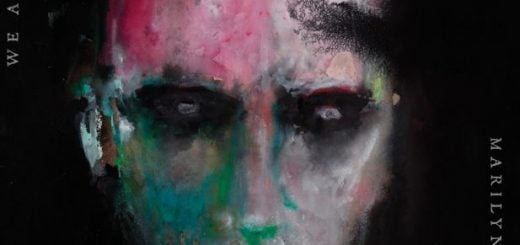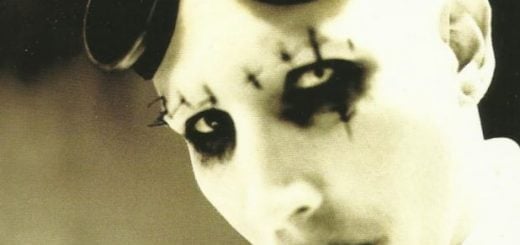The Death Song by Marilyn Manson Lyrics Meaning – Delving into the Morbid Anthem of a Jaded Youth
Lyrics
Even he’d like to end it too
We take a pill, get a face, buy our ticket
And we hope heaven is true
I saw a cop beat a priest on the T. V.
And I know they killed our heroes too
We sing the death song, kids
‘Cause we got no future
And we wanna be just like you
We wanna be just like you
We wanna be just like you
(We sing the death song, kids)
We light a candle on an earth we made into hell
And we pretend that we’re in heaven
Each time we do we get the blind man’s ticket
And we know that nothing is true
I saw a priest kill a cop on the T.V.
And I know they’re our heroes too
We sing the death song, kids
‘Cause we got no future
And we wanna be just like you
We wanna be just like you
We wanna be just like you
We sing the death song, kids
We sing the death song, kids
We sing the death song, kids
We sing the death song, kids
We write our prayers on a little bomb
Kiss it on the face and send it to God
We sing the death song, kids
‘Cause we got no future
And we wanna be just like you
We wanna be just like you
We wanna be just like you
We were the world, but we got no future
We wanna be just like you
We wanna be just like you
We wanna be just like you
We were the world, but we got no future
We wanna be just like you
We wanna be just like you
We wanna be just like you
We sing the death song, kids
In the labyrinth of Marilyn Manson’s provocative oeuvre, ‘The Death Song’ emerges as a chilling dirge pulsating with the disenchantment and rebellion characteristic of youth. This mordant track from Manson’s canon not only pierces through the veneer of societal constructs but also reveals a painful truth masked in its sardonic title. At first listen, the song may seem like a glorification of nihilism, but delving deeper, it transforms into a lament for a generation burdened with a world devoid of the heroes it was promised.
With a pulse akin to the feverish beat of the industrial rock heart, the prescient lyrics of ‘The Death Song’ capture a generational zeitgeist of disillusionment. Manson, often a lightning rod for controversy, expertly weaves social commentary with bombastic spectacle, turning a mirror on the audience and society at large. This examination goes beyond the surface, touching the raw nerves of those who sing along to its dystopian chorus, understanding its hidden meanings and undercurrents.
An Ode to the Lost Innocence and Spiraling Descent of Youth
The opening lines of ‘The Death Song’ confront the listener with inevitable mortality and the collective rush toward a divine reckoning. Yet, perhaps more disturbing is the suggestion that even divinity itself is eager for an end. It is a disillusioned acceptance of the path humanity has chosen, encapsulated in the metaphor of a ‘bullet’—both violent and irreversible.
Manson’s evocation of God not as a benevolent sage but as a co-passenger on this suicide run shakes the foundations of religious comfort. The act of ‘buying a ticket’ to heaven reflects a dissection of faith commodified, where salvation is reduced to a transaction devoid of spiritual intimacy. Is heaven a lie, a product sold to the despondent? Manson teeters on the edge of this existential abyss, questioning the veracity of promised afterlife rewards.
Tearing Down False Idols: The Deconstruction of Heroes
In a caustic twist, the lyrics ‘I saw a cop beat a priest on the T.V., and I know they killed our heroes too’ lay bare the corruption and fallibility of societal idols. The perverse image of a cop beating a priest challenges the orthodox sanctity of law and religion, while the retaliatory image provokes a sense of cyclical violence that corrodes these very institutions.
The destruction of hero archetypes suggests a landscape where moral compasses are not just broken but viciously upended. Manson deftly points to the erosion of faith in structures that are supposed to guide and protect. It is a potent reminder of the thin veneer that separates civility from savagery, and the disillusionment when the supposed guardians of each are indistinguishable.
Heaven as Hell: The Haunting Paradox of Existence
The contradiction woven through ‘The Death Song’ finds its apex in the lines ‘We light a candle on an earth we made into hell, and we pretend that we’re in heaven.’ Here, Manson illuminates the dichotomy between ideation and reality, touching on the verbal irony that bespeaks a deeper societal malaise.
The nightmarish tableau of pretending to be in paradise while in the midst of abject spiritual and ecological horror underscores the dissociative mechanisms employed by a society in denial. The ‘blind man’s ticket’ suggests that such denials are willful blindness – a refusal to see the tragedies unfolding before our eyes and a relinquishment of the responsibility to effect change.
The Resonant Chorus: Echoes of the Doomed Generation
The recurring chant, ‘We sing the death song, kids, ’cause we got no future, and we wanna be just like you,’ serves as a defiant anthem for a disgruntled youth. This chorus is not merely about the desire to emulate the dysfunctional models before them, but it also illustrates a grim resignation to the futility of striving for the different.
It is Manson’s exhortation, a statement that encapsulates the spirit of his muse – a generation disenchanted by the prospect of an inherited, hollow existence. The death song becomes their call, not so much a wish for physical demise as a mourning of the dream that there might have been anything other than this entropic trajectory.
Sending Prayers on a Bomb: The Hidden Meanings Unraveled
Perhaps the most potent symbology arises in the line ‘We write our prayers on a little bomb, kiss it on the face and send it to God.’ These words meld the sacrilegious with the tragic, implying that the last vestiges of hope are invested in an ultimate act of destruction.
This violent benediction offers a scathing critique of where desperation can lead. It is akin to a millennial death pact, where prayers are no longer whispered in chapels but scrawled on weapons—a bleak statement on the intersection of faith, violence, and protest. Herein lies the secret marrow of the song’s message: a generation’s last rites delivered as a forewarning to the apocalyptic legacy that awaits us all.








